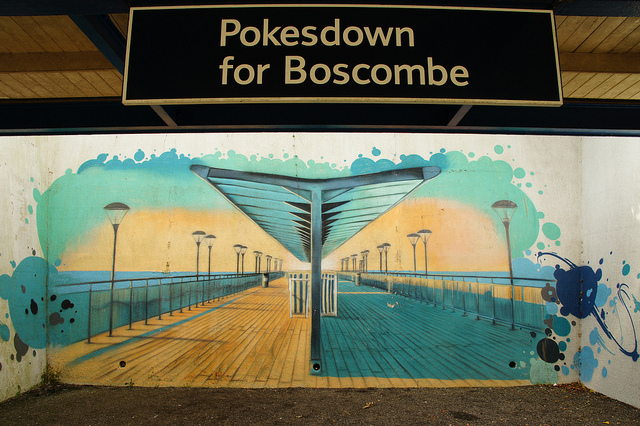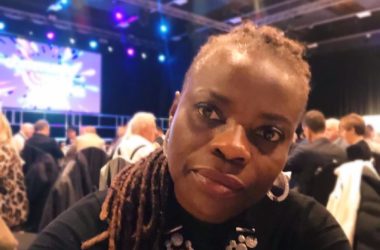It is difficult to find a female journalist, who, while navigating a media landscape heavily dominated by men, has not faced gender discrimination. In this feature, we bring together several women journalists from different nations as they recount their experiences of seeking parity.
Refusing to let any obstacle hold them back, these inspiring women fought back and demanded equal treatment and opportunities. They have each played a vital role in raising women’s voices and have dedicated their careers to telling the stories of the women around them.
An increasingly diverse and inclusive workplace culture starts with fighting biases to build an equitable industry. International Women’s Day 2023 is all about forging equity for women’s careers to thrive and accomplishments to be celebrated.
‘We give ourselves body and soul, affirming our commitment to truth’
Silvana Gonçalves, Brazil
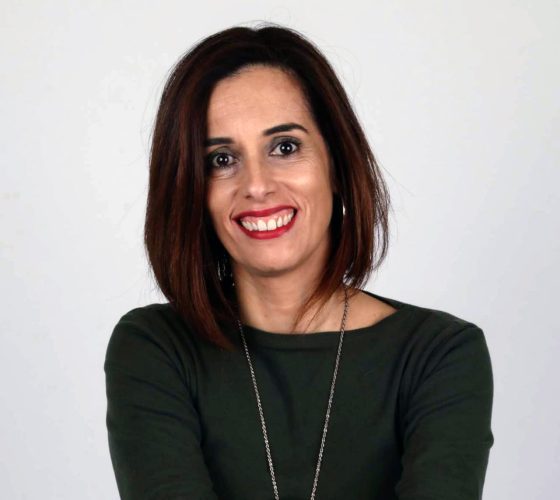
As for the advantages of being a woman journalist, I can say that these do not exist. On the contrary, in some situations in which I have experienced, the fact of being a woman was even harmful. I started very young and in editorials in which most professionals were men. For a woman, in the 90s, conquering respect in this universe considered ‘masculine’ was difficult and I believe that it is not very different nowadays.
I noticed in the daily news coverage that male sources tend, yes, to favour male journalists, their “equals”. I recall situations in which quick press interviews, in the dispute over the question space, the reporters were favoured by the tone of voice and height, being attended immediately by the sources.
However, in the day-to-day coverage, women have demonstrated efficiency and gained space through the seriousness and competence of their work. In daily journalism, from dissemination to the investigation of the news, we give ourselves body and soul, affirming our commitment to truth, with journalism as a tool of social transformation. Moreover, with the clear purpose of leaving a professional legacy to women who are to come, so that one day there will be no more wage differences and much less discrimination.
Gender equality is guaranteed daily, reaffirming purposes, conquering space with competence, firmness and seriousness, attentive to equal rights and never allowing us to be subjugated. As much as we often feel tired within this battle that should already be overcome, we are committed to journalism and the future of women.
As told to Ana Bombardelli.
‘It takes courage to keep going’
Nike Omosola Busari, Nigeria
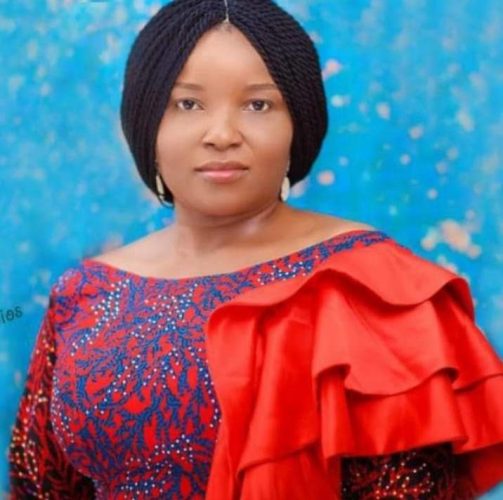
‘Gentlemen of the press.’ My profession is one that does not always recognise women, and does not really hammer or hinge. It’s not really a she profession, but at the same time it does not take away the reality that this person is a woman and being a woman has given me access in some situations in which I’ve created a network.
Being a woman in journalism takes will. It takes courage to keep going and it takes passion that yes, I’ve been called to this job. Because journalism is more like a calling, a ministry. We are serving society and we must know how to really go about it such that whatever we are doing is fair and honest. So in a way, we just have to tolerate and accommodate a lot of stress and pressure coming from the pit.
In Africa, people are naturally anti-government, maybe because over time leaders have been seen to breach their confidence, people naturally can be very hostile to you, especially if you are working with a state media, as they may feel that you are intimidating or harassing them. It takes a lot of willpower to really convince them that you are on their side, by trying to show them how to bridge the gap between them and the government.
We must continue to press. There have been times that I walk under the sun, under the rain, I work in the morning, and I walk in again after I walk out without even having time for myself. One day, I was going home from the office. As I parked my car, I was abducted. I was away for weeks . But I want to thank God that I came out alive from the experience. It shook me a bit, and I thought to myself have I done anything wrong on the job?
As told to Omodara Oluwatoyin Samuel.
‘If I can shed any light on any female’s plight, achievement or talent, it makes me happy’
Mai Al-Khatib Camille, Bahrain
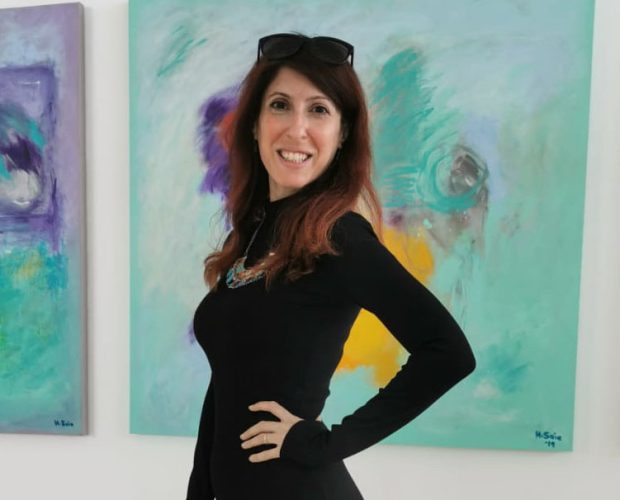
I am proud to be a female journalist, and I am also proud to be a journalist, period. I am able to be the voice for those that may not be able to speak up or share their stories. I particularly love spreading awareness on initiatives and writing features that highlight different talents, innovators, charities and campaigns. It is also wonderful to see such a rise in female journalists in Bahrain’s media scene. There are several female editors now. I remember a time when there weren’t many female journalists.
For me, it is not about gender. It is about how good of a journalist you are. It’s all about asking the right questions, doing the research and really listening to what your interviewee is saying. I did face some challenges in certain areas that fell into the sports category. When I attended conferences, it was male-dominated, hence, I wasn’t taken very seriously. It was a time when some men, not all, didn’t think women knew anything about the sport. And truth be told, I wasn’t the most knowledgeable about everything but I took the time to read and learn. I did my job. And soon enough, my stories and name were associated with sports in Bahrain. I even received an email from the Laureus World Sports Awards, which is an annual award ceremony honouring individuals and teams from the world of sports along with sporting achievements, to be a part of their voters. This email goes out to different sport reporters and experts in the world. It was an honour to be included in that category.
When one female climbs up that ladder, we should all applaud her and support her. We are stronger together and we rise together. Women come together to celebrate each other’s achievements and see how far we have come in different sectors. Women can do anything they put their minds to. Let your work speak for itself.
If I can shed any light on any female’s plight, achievement or talent, it makes me happy. Especially, when it brings a smile to their faces and helps make a difference in their cause or path. I want to help in any way I can and that really goes for any gender. But when I see a little girl flourish because what I wrote either gave her confidence or helped her in any way, that is something special.
As told to Carol Spencer.
‘I try my best to listen to as many women as I can’
Hiba Farook, United Arab Emirates
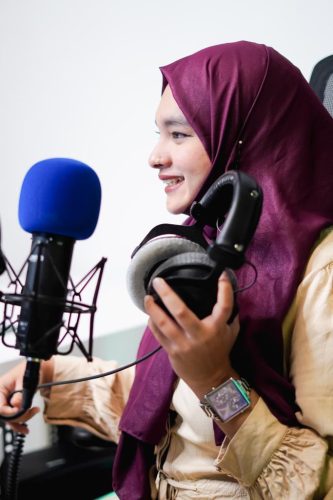
Gender equality is already evolved. I believe nowadays we talk about equity, where there are differences and we accept the differences and make sure that the space provided is fair to both genders. Maybe we need more fairness, rather than equality between genders.
Sometimes people think that we women are always driven with energy pleasantly smiling with a pleasant approach every single day. And when they don’t see that sometimes from us – maybe we’re completely drained or exhausted – they often complain about it.
I wouldn’t say that I have had an advantage because I am a woman and a radio jockey. Connecting to more people, bringing out more stories, and being able to voice out a lot of things, I would say these are the advantages of the field that I work in. I create a space where women find me trustworthy and are comfortable coming and talking to me about their issues.
The idea of International Women’s Day is to bring in voices and bring in more noise regarding womanhood. It’s an annual reminder for everyone around the world about women. I try my best to listen to as many women as I can. I feel like we need to be heard. We have to listen to one another. There’s always this sentimental or emotional in-depth conversation and connection that I feel when I listen.
As told to Ayshath Libana.
‘Women are not objects for men to admire’
Ginko Kobayashi, Japan
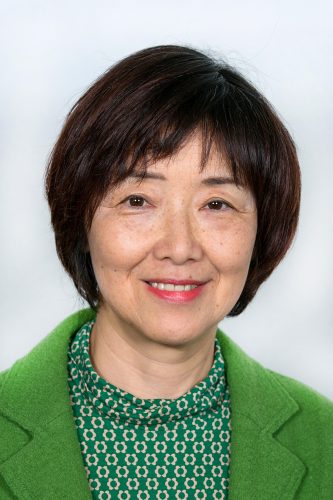
When I worked in a news media company in Japan, being a woman was a disadvantage because I wanted to write about complex topics like business and politics, but it was the norm that women were to write about home issues or fashion or movies. Mainly all companies in Japan are very male-centred. Around 95% of Japanese government officials are men, so the TV mostly shows men. People in Japan tend to think that men go out to earn and provide for the family. With this mentality, there can never be gender equality. Everything has to be changed, starting with politics and culture.
It’s really appalling that Japanese gender equality ranks 120th out of 153 countries – the lowest number in G7 knowing that Japan is a host country – but at the same time, you have to take a look at the criteria that the ranking is based on. There is a lot of old-fashioned traditional thinking prevailing in Japan and unless that changes, it’s very difficult to change only women’s issues and status.
‘Oh, how pretty!’ Stop pretending and sweet-talking. Women are not objects for men to admire. They can stand up on their own two feet and be productive.
There are lots of gender inequalities all over the world like in Saudi Arabia for example and many other countries, so it’s essential to focus on these issues on a particular day like Women’s Day so that people think about how to end these inequalities. I often find some brilliant achievements by women in various fields and then I feel encouraged. These stories also inspire younger women or girls, and I think it’s very important.
Whenever I meet a woman, I have a chat with her and I tend to introduce her to other women I know and they can mutually help each other. That’s how I expanded my network and how I contribute to the expansion of other women’s connections.
As told to Yui Yamashita.
‘The so-called ‘disadvantage’ of female journalists being sensitive is what actually brings out the story in all its details’
Tala Ramadan, Lebanon
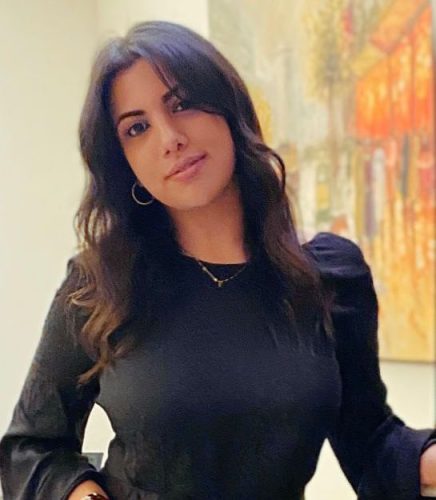
I want to amplify the voices of marginalised women; especially because we have a lot of refugees in Lebanon. Just looking at what they’ve been through and continue to go through really makes me want to be their voice. It’s what drove me into journalism, it’s something really close to my heart.
Initially, I wrote stories about women in general, but then I felt like I had a purpose that’s deeper. I continue to write about social issues, but I always have a drive at the back of my head steering me towards women refugees.
The disadvantage we have as women in journalism is our emotional side. It’s like whenever we put any kind of emotion into a social issue, it fires back. That’s because the stereotype about women is normalised that women might be dominated by their feelings and that makes them objective rather than subjective. I believe that, when done with caution, it is the strength of female journalists. Journalism is a platform made available for journalists and we talk to women who trust us, and who wouldn’t otherwise speak up. But when a sensible approach is made towards a marginalised woman, there is trust that is built. And that means so much. The so-called ‘disadvantage’ of female journalists being sensitive is what actually brings out the story in all its details.
As IWD is just around the corner, I look forward to the flow of women’s achievements and their success stories, especially in the Arab world in which I believe a lot of women are suppressed and this is them trying to get t the surface. This makes me proud. It makes me happy. I feel motivated to do more, as part of the wave that’s being created by women all over the world.
As told to Natasha Salloum.
‘It’s really up to us as journalists and content creators to hold people in power accountable’
Alex Pereira, United Kingdom
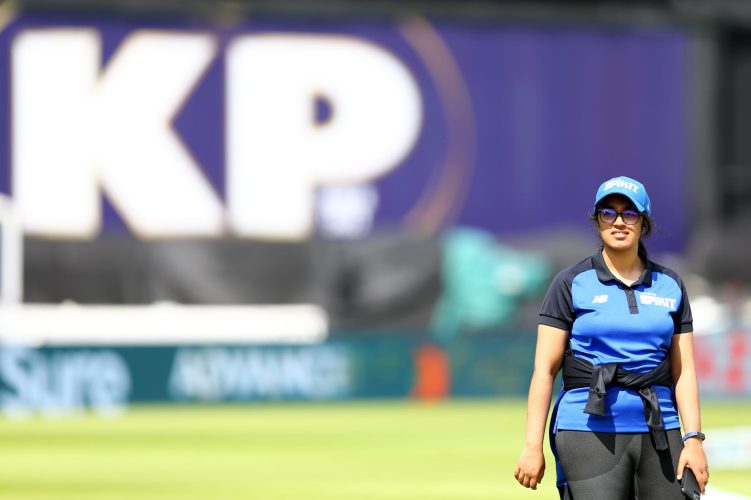
Sue Barker. Growing up, she was the go-to person for Wimbledon, and she made me fall in love with the town. I always say she’s my broadcasting role model because she was really the only woman I could see on TV. So diversity is increasing, but perhaps not at the rate we would like, but it is getting there. That was my driving force into sports channels and sports media.
Coming out of university, I wasn’t really prepared for all the setbacks. A lot of the time it was basically: ‘Oh, you’re a candidate, but you don’t quite have the experience’; it’s an entry-level requirement job, but you don’t have experience. But how do you get the experience if no one employs you? So you go around in circles.
The representation of women in sports, in general, is growing. It’s growing and it’s evolving where athletes are getting more recognised and that’s a really positive thing.
One major discriminatory factor is they always compare women’s sports to men’s sports, and football is a prime example. It’s about elite mentalities and it doesn’t matter, and it shouldn’t matter what gender. Another is media scrutiny and the media coverage of women’s sports. It’s really up to us as journalists and content creators to hold people in power accountable. If we’re constantly pressuring from the bottom to the top, we should hopefully see positive results.
Women cricketers get to play in the big stadiums, and women footballers get to play in the women’s super league, which is super positive, why shouldn’t they be doing that? Some organisations worldwide have taken steps to break barriers and just to grow from where we are right now. New Zealand Cricket, for instance, has got equal pay. The US Football Federation has done that too.
As told to Paul Bacon.
‘Women can merge compassion, authority
and discipline and they will not be relegated.’
Busola Ademiluyi, Nigeria
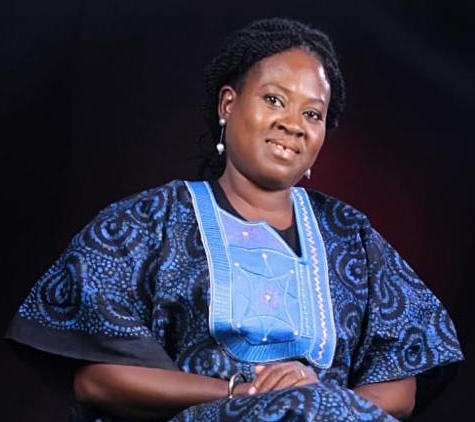
I have been in journalism for 39 years. Whenever there were juicy assignments, the men had special preferential treatment. Women were not considered suitable for certain field assignments. In situations where there were tedious assignments, women were treated with indifference. They did not care if we were women. We were reminded that we made the choice to go into the profession. We would go on assignments around town.
There is this prejudice against women in the line of duty. We are not given equal opportunities to grow. Women are perceived as incapable. We are seen as lazy. This perception drives us to work harder. It makes us go the extra mile of combining our duties as a woman at home, a woman at school and a woman at work. We work harder to prove that we are worthy. There was this radio station that was to be established, and I was not considered to head the station because I am a woman. We are constantly undermined.
International Women’s Day means celebrating women. Celebrating the achievements of women. It means recognizing them as home and society builders. When you educate a woman, you educate a whole nation. IWD is a day to showcase the capabilities of a woman. A day to prove that a woman can lead. Women are better managers because they can merge compassion, authority and discipline. This day emphasises that women will not be relegated. It is a day to fight for equal opportunities for a woman to grow.
In my line of work, I set up on-air programs to encourage upcoming career-oriented women. Women achievers are invited to these programs to serve as motivation to others. I also create opportunities for young women and train them in my organisation so that they thrive. I increase staff employment for women in my organisation as well to encourage them. What a man can do, a woman can do better!
As told to Margaret Adewumi.







